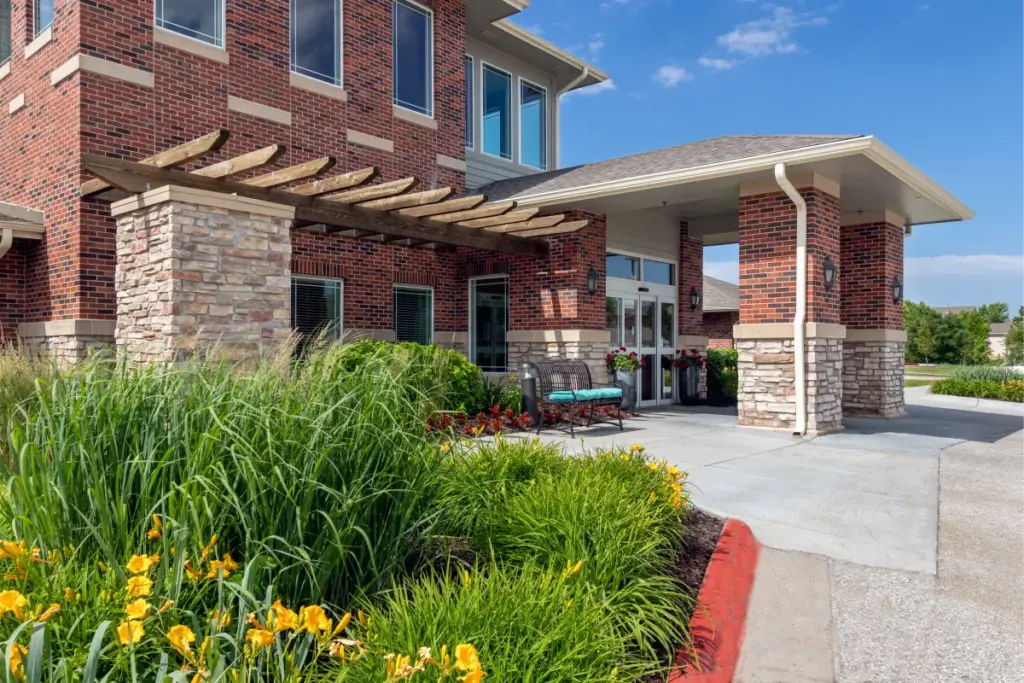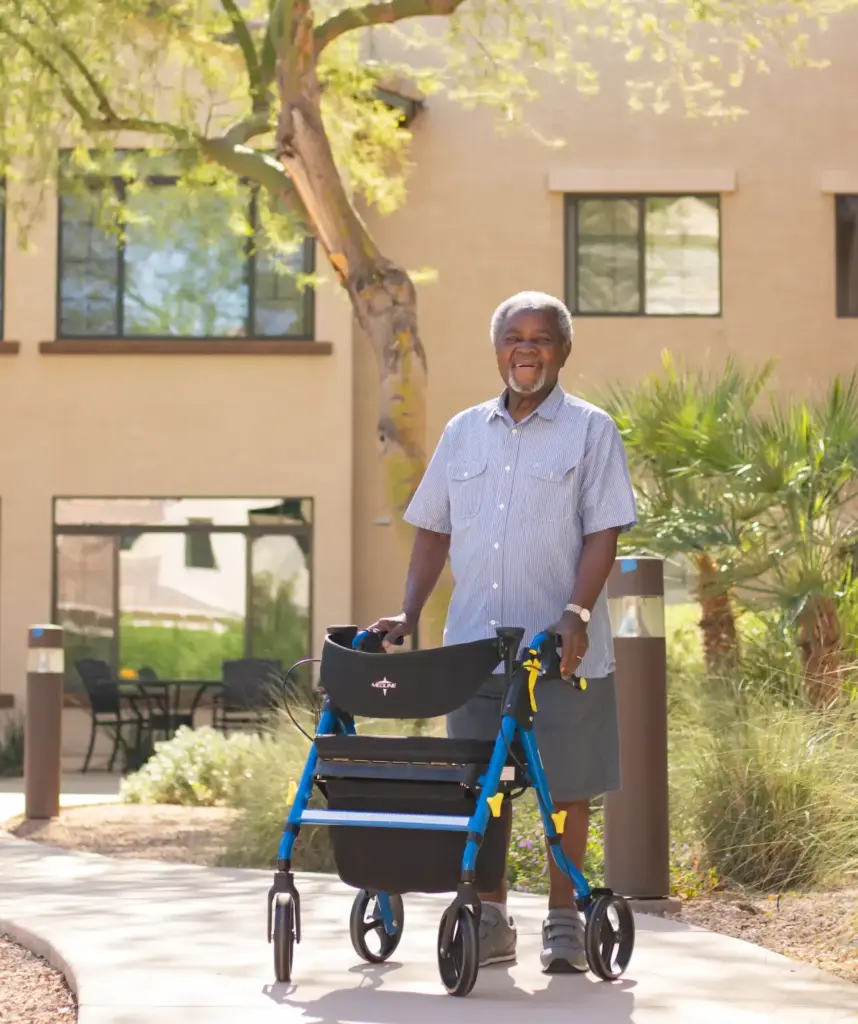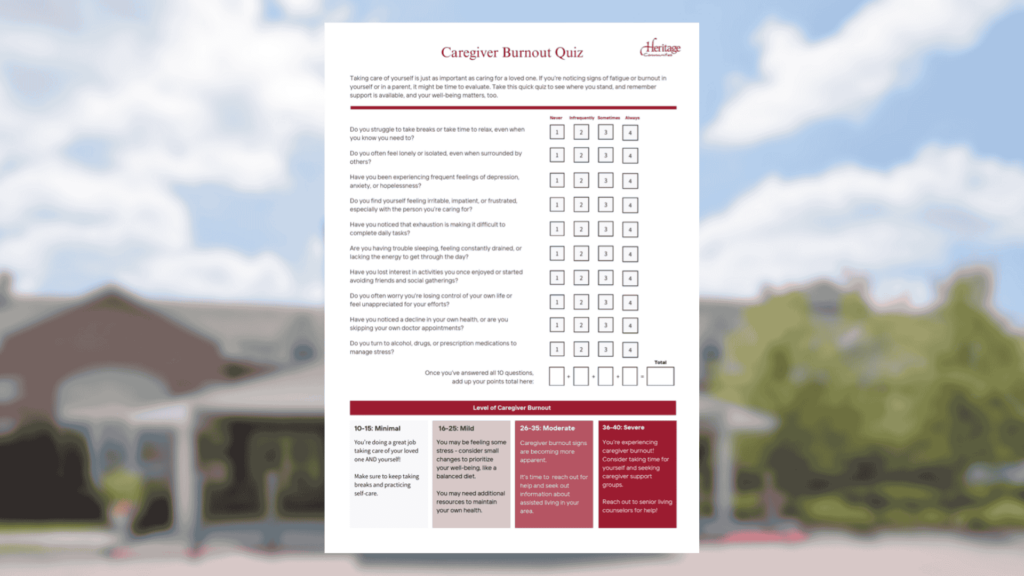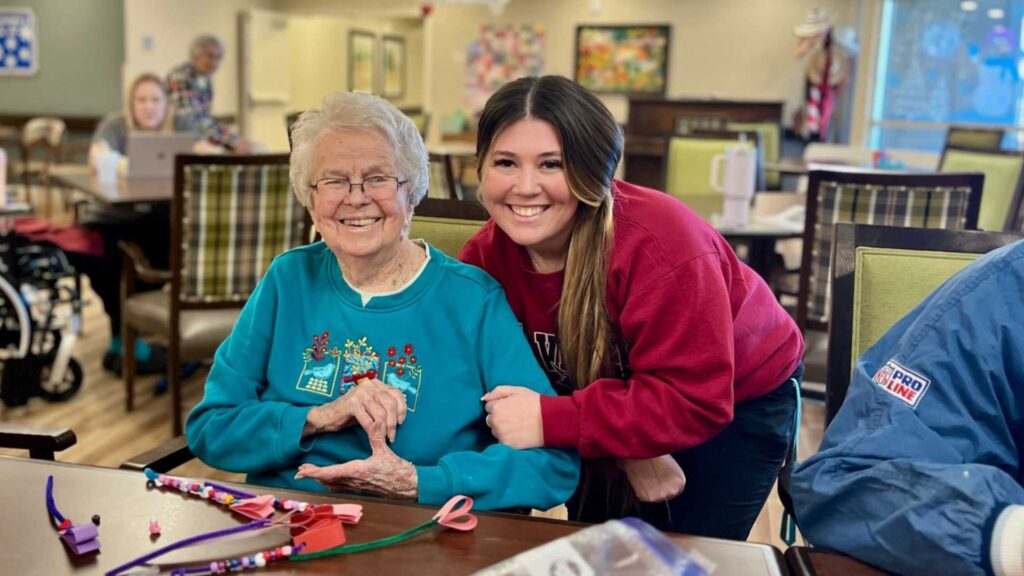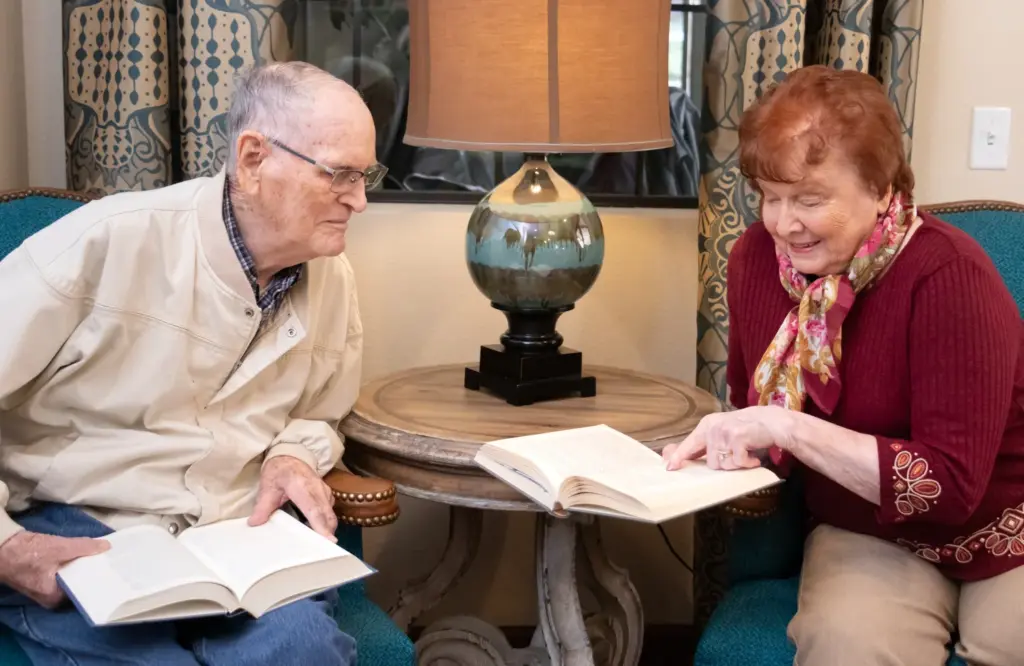When is the Right Time to Transition from Assisted Living to Memory Care?
Aging loved ones diagnosed with Alzheimer’s Disease or another type of dementia are often able to live in assisted living communities during the early stages of their disease, provided the right safeguards are in place. Knowing when to transition from assisted living to memory care can mean more peace of mind for you and more...

Aging loved ones diagnosed with Alzheimer’s Disease or another type of dementia are often able to live in assisted living communities during the early stages of their disease, provided the right safeguards are in place.
Knowing when to transition from assisted living to memory care can mean more peace of mind for you and more safety and care for your loved one.
Assisted Living versus Memory Care for Dementia
First, it’s helpful to understand the difference between these two types of senior living options. Assisted Living provides housing and assistance with activities of daily living such as bathing and dressing.
In this setting, three nutritious meals are provided each day, with onsite medical care, emergency call systems, wellness programs, a variety of social activities and enrichment opportunities, as well as transportation, all in a welcoming environment that enhances the quality of life and supports independence.
As the symptoms of dementia continue to increase, however, families often wonder when to transition from assisted living to memory care. Each person’s experience with dementia is different and comes with their own unique timeline based on their individual rate of progression.
Memory care is specifically designed to nurture those with Alzheimer’s Disease and other forms of dementia. Residents enjoy many of the same amenities as assisted living, with the added benefit of 24-hour, individualized care by specially-trained staff. A secure, easy-to-navigate environment helps reduce confusion while activities, social opportunities and reminders intended to help those with dementia, allow residents to thrive.
The intention of memory care communities is to provide a fail-safe environment for those with cognitive impairment to live their best life, reducing isolation and fear, while getting the cues and reminders they need to be as independent as possible.
Stages of Alzheimer’s Disease
In general, Alzheimer’s Disease progresses through three stages: early, middle, and late.
Early-Stage
It’s often in the early stages that your loved one may still be fairly independent, however, they may need support with some daily activities and transportation; all of which can be found in assisted living. There are still benefits to memory care in the early stages of dementia that include added safety, specialized programs and therapies, all of which can help maintain and enhance your loved one’s current skills and abilities.
Middle-Stage
During the middle stage, your loved one may have greater difficulty communicating and you may experience behaviors such as wandering. Disrupted sleeping and eating patterns may also emerge.
It’s at this point that more daily support may be needed, which may include extra time to perform tasks in addition to cueing and prompting with activities. During this stage, maintaining a familiar routine also becomes even more important. This might be when to transition from assisted living to memory care.
Late-Stage
In late-stage, free-standing assisted living communities typically aren’t equipped to provide the 24/7 care nor the training and safety measures that memory care can offer your loved one. Caregivers in memory care have received additional education and training on behaviors, agitation and de-escalating emotions in order to provide the specialized attention memory care residents require.
Memory care communities also frequently have a smaller caregiver to resident ratio, special activities, secure entry points and courtyards, and resident monitoring methods that assisted living communities do not provide.
Signs For When to Transition from Assisted Living to Memory Care
While there’s not necessarily a set timetable for how quickly (or slowly) your loved one’s Alzheimer’s Disease or another type of dementia will progress, families may want to consider when to transition from assisted living to memory care if:
- They Withdraw – Perhaps your loved one stops participating in activities, social events and/or taking advantage of amenities such as eating in the dining room or utilizing the fitness center. This could indicate their cognitive abilities are declining.
- They Ask You for More – Your loved one may begin to have more questions for you, may ask you to help with things they previously did independently or may even begin insisting that you visit more or stay longer so they feel more secure.
- They Are Increasingly Confused – While assisted living provides support where needed, residents still manage their personal affairs. So, if your loved one becomes more confused about their medications, they leave mail unopened or neglect to pay bills, forget appointments, misplace items more often or even lose their way in the community, they may need additional support.
- They Wander – Older adults with Alzheimer’s or dementia pose a risk to themselves if they exit the safety of the senior living community and find themselves confused and lost.
- They Seem Depressed – Your loved one may have previously been content in assisted living, however as their dementia progresses, they may begin to lose their confidence after struggling with daily activities or social situations, may feel embarrassed for being forgetful around friends and may simply begin to feel overwhelmed by the community lifestyle causing them to become depressed.
Easing the Transition to Memory Care
Many of our senior living communities offer both assisted living and memory care on the same campus, and some allow residents to transition in the same apartment. This can help make the transition to memory care easier because it allows your loved one to remain in familiar surroundings and to benefit from continuity of care which can give you both added peace of mind.
Heritage Communities offers a range of options—from home care to independent living and assisted living, dementia care, and respite services for older adults—in Nebraska, Iowa, and Arizona. We encourage you to call the Heritage Communities location nearest you to learn more. Download our guide, How to Fund Senior Care and Housing, for information on the options to fund senior living.


